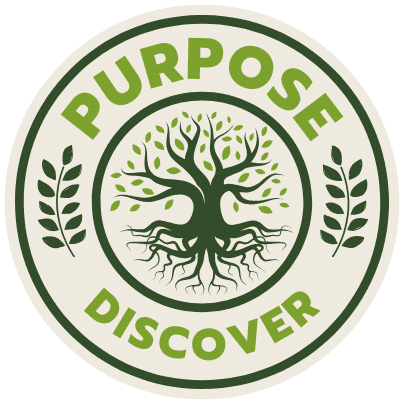There’s something almost maddening about the idea of “trusting the journey.” It sounds like one of those clichés you might roll your eyes at, especially when life is knee-deep in chaos. Yet, when you peel back the layers, it turns out this phrase packs a punch that cuts deeper than any self-help mantra tossed casually on Instagram. Trusting the journey isn’t about blind optimism or waiting for some magical outcome. It’s about cultivating a relationship with yourself and the process, no matter how messy or uncertain that process might be.
Think about it: growth rarely arrives on a ten-speed bike, all neat and speedy. It’s slow, winding, sometimes painful, often thrillingly unpredictable. The path can look like a jigsaw puzzle dumped on the floor — pieces scattered, no reference picture, and you’re just trying to make something of it. So, how does trusting that messy, unpredictable journey actually help us grow as people?
The Illusion of Control and Why Letting Go Feels Like Losing
At first glance, trusting your journey might feel like ceding control. Who wants that? We live in a culture obsessed with mastery and certainty—“Get the promotion,” “Have the perfect relationship,” “Find yourself in precisely 10 easy steps.” But the brutal truth many of us avoid facing is that control is mostly an illusion. Life throws curveballs, plans unravel, and sometimes, all you can do is hitch a ride with the chaos.
Letting go of the need to control every outcome isn’t easy; it’s a learned muscle that many only start flexing when life smacks them around a bit. But here’s the kicker: when you stop trying to tightly grip every detail, you open up space for something richer. You begin to notice the detours, the unexpected stops—the moments where growth actually happens.
The Power of Embracing Uncertainty
Imagine if you could sit with uncertainty without freaking out. Not fake bravery, but a real, unshakable acceptance that you don’t have to have all the answers right now. That’s the core of trusting the journey. It’s uncomfortable, sure, but it’s also freeing. When you embrace uncertainty, your mind relaxes its desperate search for certainty, and suddenly, you’re more open to change, to learning, to seeing yourself evolve.
Uncertainty is like the gray area of life—the space where creativity and transformation thrive. It’s where you meet your authentic self, stripped of all the expectations and ‘shoulds’ piled on by society, family, and that annoying inner critic. Growth creeps out of those cracks left by uncertainty, filling in the gaps with self-awareness and resilience.
Why Patience Isn’t Just a Virtue but a Growth Catalyst
Nobody likes waiting. Not really. But patience isn’t just about biding your time; it’s a form of respect for the process you’re undergoing. You can’t rush the inner work, no matter how many TED Talks promise accelerated personal growth hacks. Real change requires time, trial, error, and sometimes, a good dose of boredom with your own progress.
Think of it like planting a seed. You don’t scream at it to sprout faster or yank it out to see if it’s growing. You tend to it, feed the soil, give it sunlight, and trust that the process you’ve started will unfold. Trusting the journey calls for the same care with yourself. It teaches you patience, which is not passive but deeply active—a constant choosing to stick around for your own transformation, even when it’s hard.
How Trusting the Journey Sharpens Self-Awareness
There’s a kind of magic in the way life’s ups and downs peel back the layers of your personality. The more you stop fighting the process and start observing it, the more you learn about who you are beneath the surface. You recognize patterns, triggers, strengths, and habits you never paid attention to before.
By trusting the journey, you become a curator of your own inner landscape. You start asking better questions: Why do I react this way? What scares me? What feeds me? This self-awareness is the bedrock for meaningful personal growth. Without it, change remains superficial, like putting a fresh coat of paint on a wall full of cracks.
The Role of Failure, Flaws, and Fumbling
Here’s something I rarely hear enough people say: flubbing up is actually a sign of progress. Every misstep, every failure along the way is a messily scribbled note on your growth playlist. Too many treat failure as a red light when it’s really a turn sign, an invitation to shift, learn, adjust.
Trusting the journey means you’re okay with being imperfect, with fumbling your way through chapters that don’t look like they belong in a highlight reel. It means stopping the endless self-sabotage of judgment and instead seeing mistakes as data. Not good or bad, just information. This mindset flips personal growth on its head. Instead of fearing pain or rejection, you learn to embrace the uncomfortable parts of the process as necessary training grounds for resilience and wisdom.
Why Trusting Your Journey Beats Chasing Quick Fixes
In a world glued to instant gratification, promising quick success stories and overnight growth, trusting the journey asks for a radical slowing down. Quick fixes feel good—the dopamine hit of “I’m improving!”—but they rarely stick. The kinds of changes that matter, the ones that dig deep and transform you from the inside out, require time, introspection, and yes, sometimes boredom with the pace.
Think about any skill, hobby, or relationship you’ve built that lasts. It wasn’t forged overnight. Trusting the journey comes with the hard-won wisdom that patience and steady effort grow something more enduring than flashy fireworks.
Can Trusting the Journey Help You Find Purpose?
I wouldn’t be honest without mentioning how much trusting your journey aligns with uncovering your purpose. When you stop forcing answers and deadlines on yourself, things start to unfold organically. Your values become clearer, your passions light up in new ways, and the pieces of your life puzzle start aligning in surprising, fulfilling patterns.
If you’re itching to explore more about discovering your true calling, places like What Is Your Purpose offer thoughtful insights that complement this mindset. They remind you that purpose isn’t some distant treasure chest you stumble upon but something cultivated step by steady step along the winding road you’re already traveling.
What Does It Look Like to Trust Your Journey Daily?
Trusting the journey isn’t a one-and-done deal. It’s a daily practice that requires presence and compassion for yourself. Some days you’ll get it right; other days you’ll feel like you’re back at square one. Here’s what that can look like in the trenches:
🌱 Allow yourself to feel without immediately solving or fixing. Feeling deeply is a vital part of growth.
🌱 Celebrate small victories that don’t always make the highlight reel.
🌱 Give yourself permission to pause and rest instead of always pushing forward.
🌱 Avoid harsh self-criticism; nurture gentle encouragement like you would for a friend.
🌱 Keep questioning your assumptions, beliefs, and fears as part of the evolving story you’re writing.
In the End, It’s About Relationship
If there’s one thing this whole “trusting the journey” idea boils down to, it’s about relationship—the one you have with yourself. When you nurture that connection with patience, curiosity, and kindness, it becomes fertile ground for growth. You’re no longer fighting the current but learning how to navigate it with wisdom.
Maybe that’s the biggest lesson: trusting your journey means loving yourself enough to hold space for all parts, even the scary or unknown ones. Growth isn’t a race; it’s a dance with time, circumstance, and sometimes, sheer mystery.
So next time you feel stuck or overwhelmed, ask yourself if you’re in a battle against life’s twists or quietly learning from them. Trusting the journey isn’t resignation; it’s radical commitment to becoming your most real, authentic self—even when the road looks nothing like you expected. That alone is worth everything.

